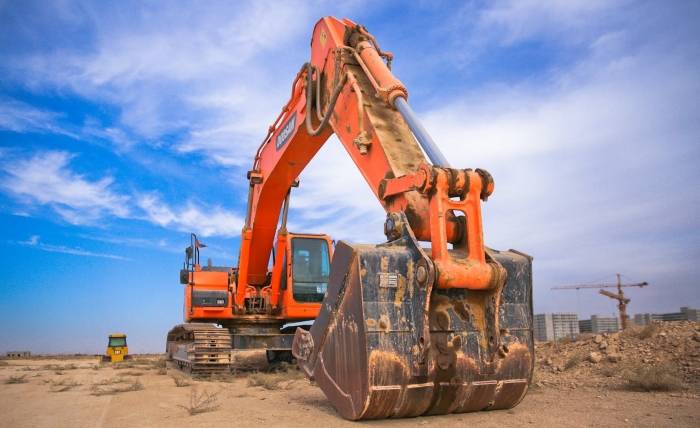Construction equipment fleet managers face significant challenges in maintaining optimal performance, extending equipment lifespan, and controlling operational costs across diverse machinery. Effective maintenance strategies go far beyond simple repairs and routine servicing. They incorporate comprehensive planning, data analysis, material selection, and technological integration.
Modern maintenance approaches emphasize proactive measures rather than reactive fixes, preventing costly downtime and extending the useful life of valuable assets. Fleet managers who implement systematic maintenance protocols typically see improved operational reliability, enhanced safety records, and stronger financial performance. The following practices represent core components of a successful maintenance program for construction equipment fleets.
Developing Comprehensive Maintenance Schedules
Developing structured maintenance schedules represents the foundation of effective fleet management for construction equipment. Regular maintenance intervals based on both operating hours and calendar time provide optimal protection for your valuable assets. These schedules should account for manufacturer recommendations while considering the specific environmental conditions your equipment operates in, such as extreme temperatures or dusty environments.
Tracking maintenance history for each piece of equipment allows for pattern recognition that can help predict and prevent potential failures. Comprehensive maintenance scheduling ultimately extends equipment lifespan, reduces downtime, and maximizes the return on investment for your construction fleet.
Understanding Fluid Analysis Programs
Fluid analysis programs offer critical insights into the internal health of equipment components before visible problems develop. Oil samples from engines, hydraulic systems, and transmissions can reveal metal particles that indicate specific types of wear occurring within these systems. Professional analysis services can detect contaminants, coolant leaks, fuel dilution, and other conditions that might lead to catastrophic failures if left unaddressed.
The data collected through regular fluid analysis establishes performance baselines and reveals trends that facilitate proactive maintenance decisions. Fleet managers who implement robust fluid analysis programs typically experience fewer unexpected breakdowns and can schedule repairs during planned downtime rather than during critical project phases.
Maintaining Final Drives in Heavy Equipment
Final drives in excavators and bulldozers deserve special attention as these components experience tremendous torque and often operate in harsh conditions. Regular inspection of oil levels, checking for contamination, and monitoring for unusual noises or vibrations can prevent expensive rebuilds or replacements. The sealed design of modern final drives means that proper oil selection with the correct viscosity and additive packages significantly impacts their longevity.
Qualified technicians from specialized heavy equipment service providers can perform professional assessments and maintenance of these critical components. Proactive maintenance of final drives typically costs a fraction of what emergency repairs or replacements would require when these components fail during operation.
Selecting Appropriate Component Materials
Material selection for replacement parts dramatically impacts equipment performance and maintenance intervals in construction machinery. Stainless steel piston rings offer superior performance in diesel engines operating in corrosive environments or marine applications where standard components might deteriorate rapidly. These specialized rings provide enhanced durability in high-temperature operations and resist corrosion in humid conditions that would compromise standard chromium rings.
Providers, such as AD Piston Ring, can advise on appropriate applications and supply these specialized components based on your specific operating environments. The initial higher cost of premium materials like stainless steel components typically results in extended service intervals and lower total ownership costs for equipment operating in challenging conditions.
Implementing Telematics for Predictive Maintenance
Modern telematics systems transform maintenance practices by providing real-time data on equipment performance and condition. These systems monitor critical parameters including engine temperature, oil pressure, fuel consumption, and hydraulic system performance across your entire fleet. Fleet managers can establish alerts based on parameter thresholds that indicate potential problems before they cause equipment failure or safety hazards.
Service providers like OEM-specific diagnostic centers can help integrate and interpret telematics data for your specific fleet composition. The implementation of telematics-based maintenance programs typically reduces total maintenance costs by 15-25% while improving equipment availability and operational efficiency.
Training Operators for Maintenance Awareness
Operator training represents a frequently overlooked aspect of effective maintenance programs for construction equipment. Operators who understand the mechanical systems they control can identify early warning signs like unusual noises, vibrations, or performance changes before sensors detect problems. Daily inspection protocols performed by operators catch issues like loose fasteners, minor leaks, or belt wear that might escalate into major failures if unaddressed.
Training resources can develop this critical awareness in your operator team. Well-trained operators who participate actively in the maintenance process contribute significantly to equipment longevity and reduced maintenance costs across the fleet lifecycle.
Effective maintenance management for construction equipment requires a multifaceted approach combining scheduled servicing, fluid analysis, proper component selection, technological monitoring, and human expertise. Fleet managers who integrate these practices create resilient maintenance systems that protect their equipment investments and support project timelines. As construction technology continues to evolve, maintenance practices will remain a critical differentiator between companies that maximize their equipment value and those that struggle with reliability issues and unnecessary operational costs.

